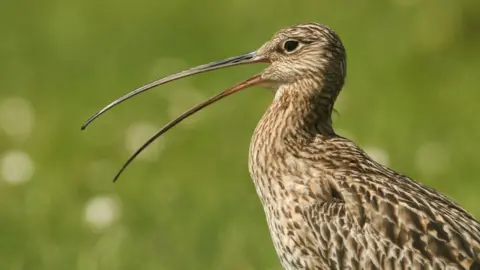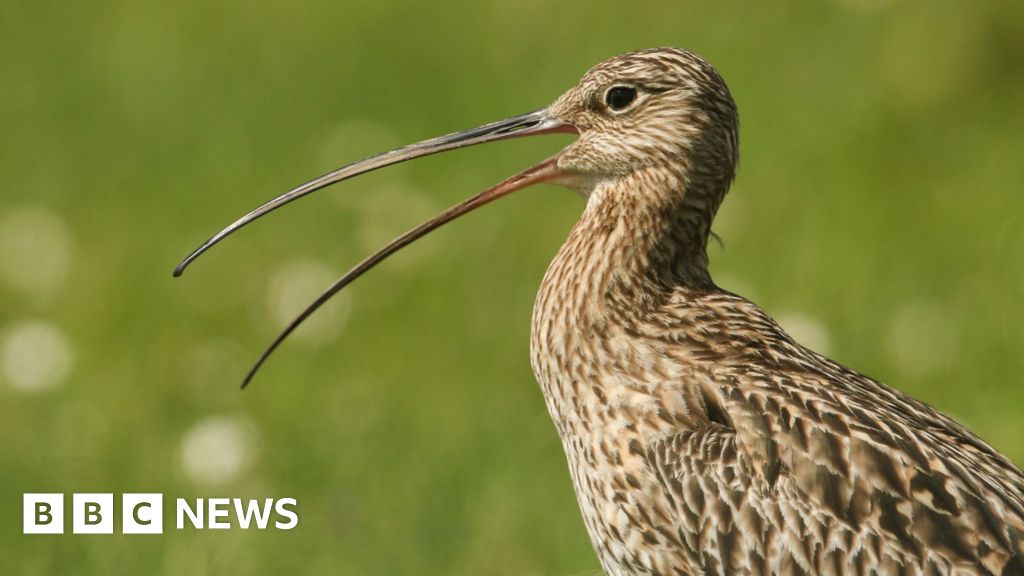 Getty Images
Getty ImagesThe number of curlew wading birds in Orkney is on the rise again after a drive to reduce the number of predatory stoats.
The carnivorous mammals are classed as an invasive species in the islands, and a culling programme for stoats began in 2019.
At the time, a survey suggested the curlew population had declined by 50% in a decade.
The Royal Society for the Protection of Birds (RSPB) said latest data indicated a 21% rise in the species in Orkney, in contrast to mainland Scotland and other parts of the UK.
When the Orkney Native Wildlife Project began removing stoats in 2019 it was estimated there were 12 breeding pairs of curlew per square kilometre.
This is now believed to have risen to an average of 14.5 breeding pairs, after more than 7,000 stoats were removed in what is believed to be the biggest predator eradication programme to be conducted on an inhabited island.
Anne McCall, director of RSPB Scotland, said: “It is fantastic to see that the hard work of the project team and many volunteers is starting to restore a positive future for vulnerable species in Orkney.
“This is the first major population survey for waders since work started to remove stoats from Orkney and the signs are really promising, as we see declines for curlew reversed.
 Orkney Native Wildlife Project
Orkney Native Wildlife ProjectStoats were first spotted in Orkney in 2010, although it remains a mystery how they got to the islands.
One theory is that they arrived with a cargo from the mainland such as hay, but they may have been released intentionally to control rabbit populations.
Aside from curlew, they pose a threat to a number of native species including the Orkney vole, short-eared owl and hen harrier.
The Orkney Native Wildlife Project says it uses lethal traps to humanely kill the stoats.
The eradication project employs more than 40 people and also uses specially-trained dogs to locate the animals.
The RSPB said curlew numbers had continued to decline on mainland Scotland and elsewhere.
Surveys suggest populations have decreased by 13% between 2012 and 2022, and there has been a wider UK-wide decline of around 50% since 1995.

